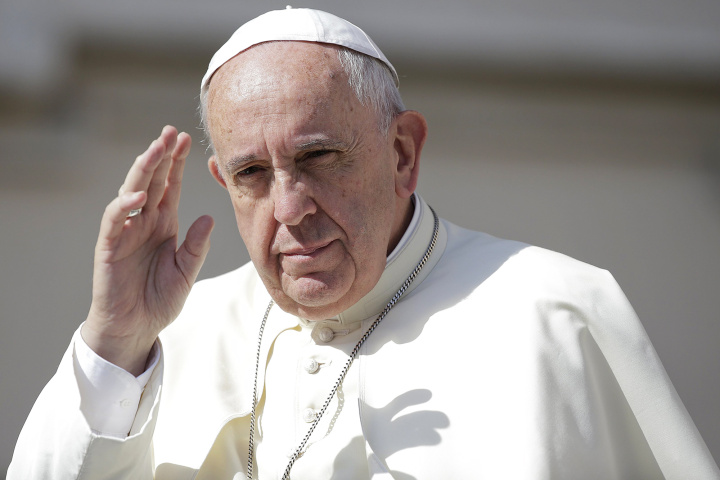A Warm Welcome
Pope Francis' long awaited first visit to the United States is much like that of a long lost uncle returning to the family. During his official welcome at the White House yesterday, Francis said, “I am deeply grateful for your welcome in the name of all Americans. As the son of an immigrant family, I am happy to be a guest in this country, which was largely built by such families.” This comes days after the United States said it would take in more than 15,000 Syrian refugees in the next two years. Francis' voice resounded within the European community as he called for “every” parish to take in a Syrian family. However, many nations, such as Germany, wonder how many more refugees it is possible to take in.
During his visit to Cuba, just prior to his visit to the United States, the Pope refrained from mentioning specific policies such as the embargo or other thorns that stand in the way of full reconciliation of relations. He did acknowledge thawing relations in the last remnant of the Cold War after nearly a decade of secret meetings in the shadows of the Vatican.
“Mr. President, the efforts which were recently made to mend broken relations and open new doors to cooperation within our human family represent positive steps along the path of reconciliation, justice and freedom," said Pope Francis on Wednesday.
President Obama also welcomed the Pope’s support for improving relations between the United States and Cuba.
"You remind us of the costs of war, particularly on the powerless and defenseless, and urge us toward the imperative of peace. Holy Father, we are grateful for your invaluable support of our new beginning with the Cuban people, which holds out the promise of better relations between our countries, greater cooperation across our hemisphere, and a better life for the Cuban people," said President Obama.
The Pope also foreshadowed what he might say in a joint session address to Congress. However, during his welcome message, the Pope vexed many members of the Republican Party. Some had high hopes that his trip would not evolve specific policies, such as climate change. Those hopes were dashed early on in his trip:
“Accepting the urgency, it seems clear to me also that climate change is a problem which can no longer be left to a future generation. When it comes to the care of our common home, we are living at a critical moment of history . . . Our common home has been part of this group of the excluded which cries out to heaven and which today powerfully strikes our homes, our cities, our societies," said Francis. “To use a telling phrase of the Reverend Martin Luther King, we can say that we have defaulted on a promissory note and now is the time to honor it.”
The precise message of Pope Francis finds no precedent among past popes. Nearly 70 million Americans identify as followers of the Catholic faith, and many of them find the Pope's views, particularly on climate change and gay marriage, to be startling, in the least. Homosexuality has been a topic the Vatican has been slow to address, despite the recent legalization of homosexual marriage. En route home from a trip to Brazil in 2013, Pope Francis told reporters aboard the plane, “If someone is gay and he searches for the Lord and has good will, who am I to judge?” His words differed dramatically from Benedict XVI's harsh pronouncement in 2005 that homosexuality "a strong tendency ordered toward an intrinsic moral evil” and an “objective disorder.”
Pope Francis is known for crossing well-established lines. It is difficult to predict what he will say tomorrow in an address to Congress or Friday in an address to the U.N. General Assembly, but it is safe to say his message will continue to make waves among Catholics and non-Catholics alike.
Photo Source: New York Post

